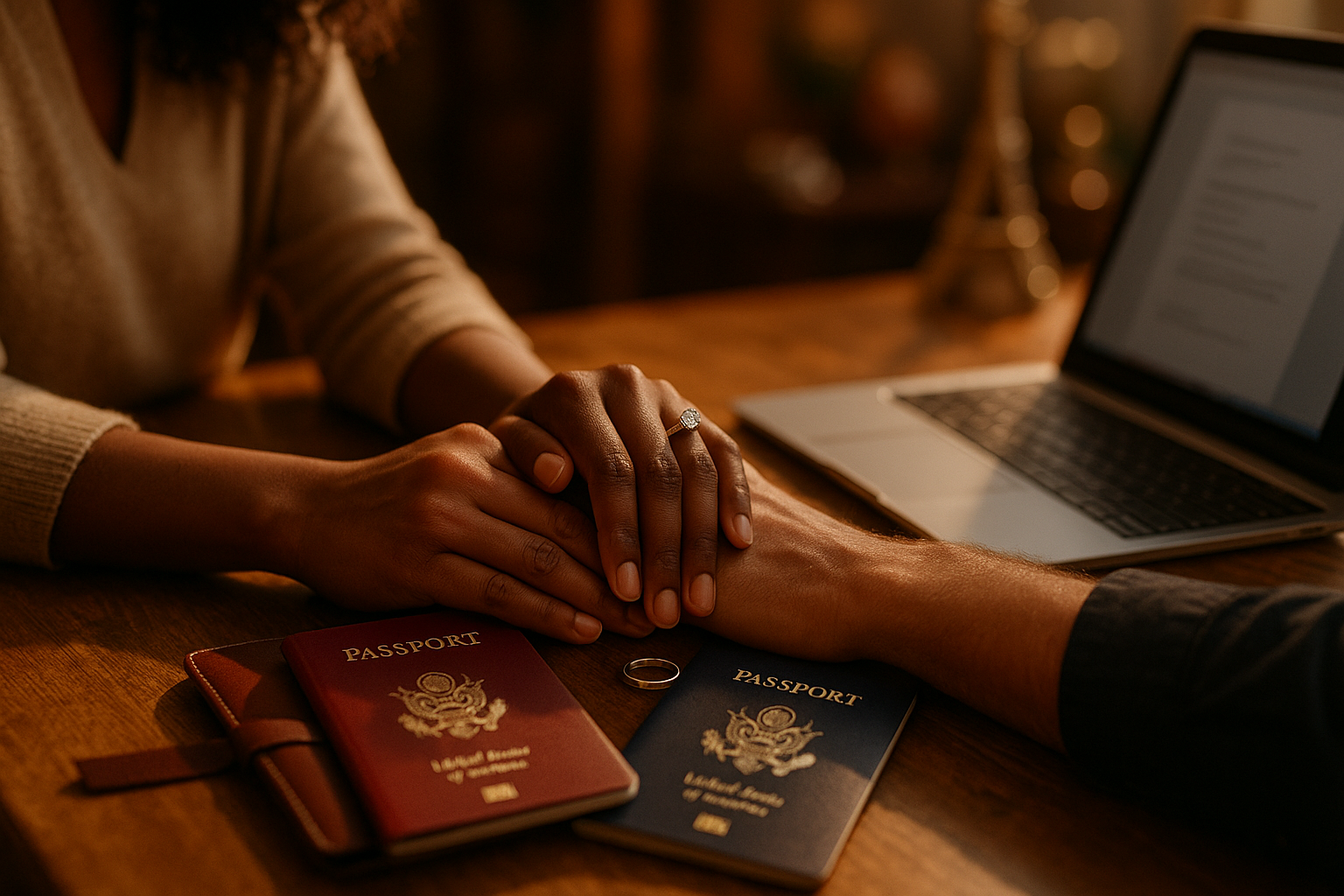In today’s interconnected world, the concepts of dual citizenship and virtual marriages are becoming increasingly relevant. As couples from different countries seek to unite through online wedding ceremonies, understanding the passport implications of such unions is crucial. Let’s delve into how virtual marriages can influence dual citizenship and what you need to know about managing your passports.
Understanding Virtual Marriages
Virtual marriages, also known as online weddings, allow couples to get married online without being physically present in the same location. This innovative approach has gained popularity, especially among international couples facing travel restrictions or logistical challenges. States like Utah have pioneered legal frameworks to facilitate these ceremonies, making it possible for couples worldwide to tie the knot virtually.
Dual Citizenship: An Overview
Dual citizenship refers to an individual holding citizenship in two countries simultaneously. This status can offer numerous benefits, including enhanced travel freedom, access to social services in both countries, and expanded work opportunities. However, it also comes with responsibilities, such as adhering to the legal and tax obligations of both nations.
How Virtual Marriages Impact Dual Citizenship
Marrying a foreign national through a virtual ceremony can be a pathway to dual citizenship, but the process varies depending on the countries involved. Here are key considerations:
1. Recognition of Virtual Marriages
Not all countries recognize virtual marriages. It’s essential to verify whether both your country and your spouse’s country accept online wedding ceremonies as legally binding. For instance, the U.S. Citizenship and Immigration Services (USCIS) recognizes virtual marriages for immigration purposes, provided they are legally valid in the jurisdiction where they were performed and the marriage has been consummated afterward. Learn more about virtual marriage recognition.
2. Pathway to Citizenship
Marriage to a citizen often provides a route to citizenship, but requirements differ by country. Some nations may require a period of residency, language proficiency, or other criteria before granting citizenship. It’s crucial to understand the specific requirements of your spouse’s country to navigate this process effectively.
Passport Considerations for Dual Citizens
Holding dual citizenship means managing two passports, each with its own set of rules and benefits. Here are some important factors to consider:
1. Travel Regulations
Dual citizens must be aware of the travel regulations of both countries. Some nations require their citizens to enter and exit using their passport, which can affect travel plans. Understanding these regulations ensures smooth international travel. Read more about travel implications for dual citizens.
2. Tax Obligations
Dual citizenship can lead to complex tax situations, as some countries tax their citizens on worldwide income. It’s essential to be aware of your tax obligations in both countries to avoid legal issues. Consulting with a tax professional experienced in international taxation can provide clarity and help you remain compliant. Understand tax responsibilities for dual citizens.
3. Military Service
Some countries require mandatory military service from their citizens, regardless of dual nationality. This obligation can have significant implications, so it’s important to research and understand the military service requirements of both countries. Learn about military obligations for dual citizens.
FAQs
Q: Are virtual marriages recognized for immigration purposes?
A: Yes, in many cases, virtual marriages are recognized for immigration purposes, provided they are legally valid in the jurisdiction where they were performed and the marriage has been consummated afterward. It’s important to check the specific requirements of the country in question.
Q: Can I hold passports from both countries if I have dual citizenship?
A: Yes, dual citizens typically hold passports from both countries. However, some countries may have specific regulations regarding passport use, so it’s important to be aware of and comply with these rules.
Q: Will I have to pay taxes in both countries if I have dual citizenship?
A: Potentially, yes. Some countries tax their citizens on worldwide income, regardless of residency. It’s crucial to understand the tax laws of both countries and seek professional advice to ensure compliance and avoid double taxation.
Q: Does dual citizenship affect my ability to travel?
A: Dual citizenship can enhance travel freedom, allowing you to enter and exit both countries without visas. However, some countries have specific entry and exit requirements for their citizens, so it’s important to be informed about these regulations.
Q: How can I ensure my virtual marriage is legally recognized?
A: To ensure your virtual marriage is legally recognized, verify that the jurisdiction where the marriage is performed allows virtual ceremonies and that both your country and your spouse’s country recognize such marriages. Consulting with legal professionals can provide guidance tailored to your situation.
Embarking on the journey of dual citizenship through a virtual marriage is an exciting prospect, but it requires careful planning and understanding of the legal implications. At Virtual Same Day Marriage, we’re here to assist you every step of the way. Contact us today to learn more about how we can help you navigate this process seamlessly.




